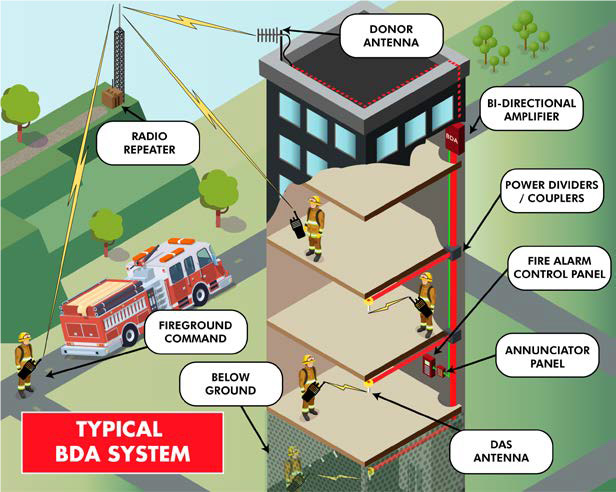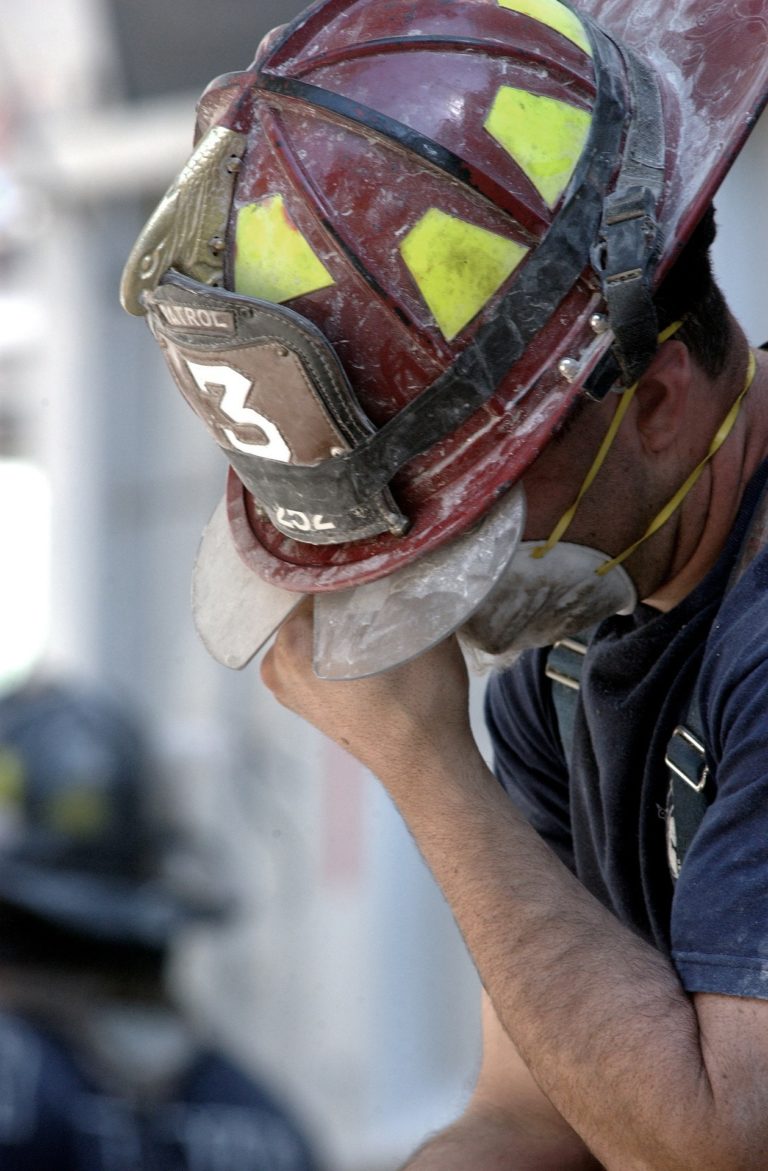Safeguarding Lives With BDA
In the years after 9/11, ICC and NFPA first-responder radio coverage code requirements were developed and are now increasingly being enforced at the local level. Why is it so important for you to ensure compliance? Beyond the fines and penalties you may incur for inadequate signal strength, the rare occasion may arise where life safety is at risk. It’s best to be fully prepared than under-prepared.
A Difficult Lesson in Emergency Response
Benjamin Franklin said, “By failing to prepare, you are preparing to fail.” Never has this been more true than on September 11, 2001. Amidst the chaos of the terror attack on the Twin Towers, rescue efforts were hindered by poor radio signals.


9/11: A Fatal Communication Failure
At 8:46 a.m., American Airlines Flight 11 flew directly over Battalion Chief Joseph Pfeifer’s head and crashed into the north tower of the World Trade Center. He was the first fire chief to reach the building and began sending firemen up the stairwell. He soon discovered that he had no way to keep in touch with the rescuers… his two-way radio was not working inside the high-rise building.
A short time later, Assistant Chief Joseph Callan felt the north tower move and made the decision that the building was no longer safe. At 9:32 a.m., he ordered all units to come out and come down to the lobby. Hardly any firefighters inside the tower responded. Few people had heard the order.
After the south tower fell, a police helicopter saw that the north tower was also in danger of collapse and radioed for an immediate evacuation. Nobody responded. Twenty-one minutes after the helicopter pilot’s warning, the tower collapsed.
The New York Times estimated that at least 121 emergency responders were close enough to the lobby to have exited the building before its collapse.
“When the firefighters needed to communicate, their radio system failed, just as it had in those same buildings eight years earlier, during the response to the 1993 bombing at the trade center. No other agency lost communications on Sept. 11 as broadly, or to such a devastating effect, as the Fire Department.” -Jim Dwyer & Kevin Flynn, New York Times
Communication is critical in any emergency. Ensuring your facility maintains a 95% or better emergency signal strength prevents problems and provides peace of mind. Talk with experts at BSGI to learn more about BDA requirements, installation, testing, and certification.








